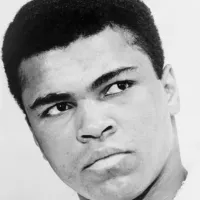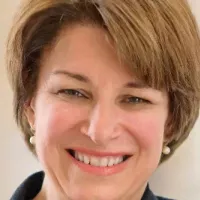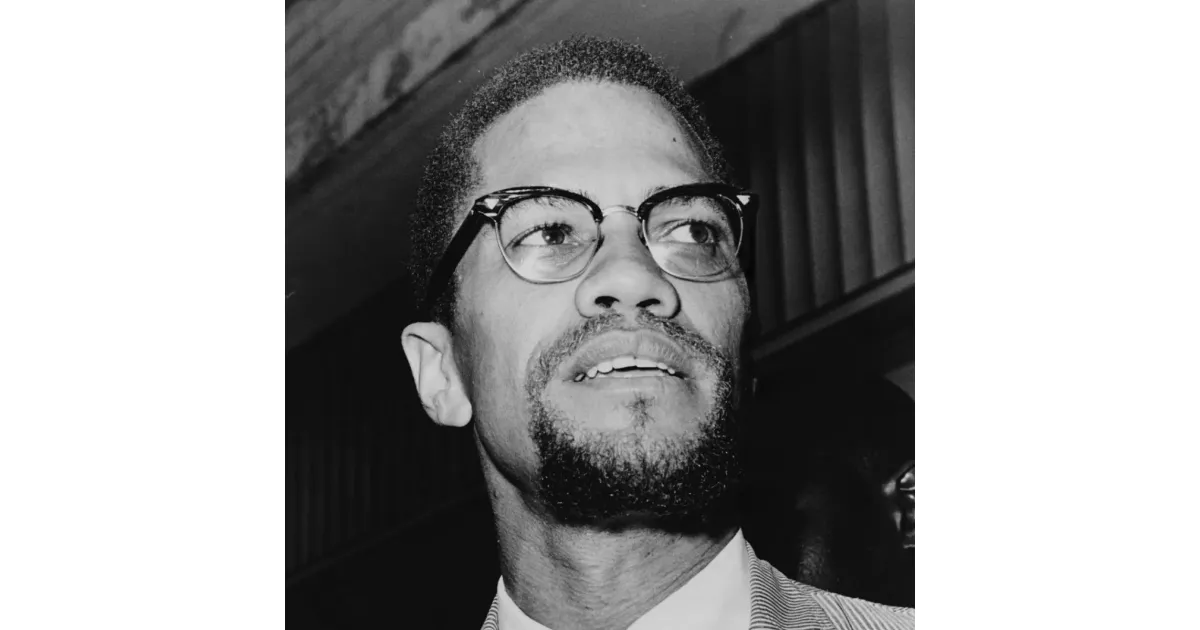Malcolm X was a prominent African American activist and minister. Initially a spokesman for the Nation of Islam, he advocated for Black empowerment and the spread of Islam within the African American community. While a controversial figure often accused of preaching violence, he is also celebrated for his pursuit of racial justice and significant contributions to the Civil Rights Movement. He was assassinated in 1965.
May 19, 1925: Malcolm X's Birth
On May 19, 1925, Malcolm Little, later known as Malcolm X and el-Hajj Malik el-Shabazz, was born. He became a prominent African American revolutionary, Muslim minister, and human rights activist.
1926: Family Relocated to Milwaukee
In 1926, due to Ku Klux Klan threats, the family relocated to Milwaukee because Earl's UNIA activities were considered "spreading trouble".
1929: Family Home Burned
In 1929, the family home in Lansing, Michigan, was burned, an act Earl attributed to the Black Legion, a White racist group.
1937: Louise's Relationship Ended
In 1937, a man Louise had been dating vanished from her life when she became pregnant with his child, marking a turning point in the family's stability.
1938: Louise Committed to Kalamazoo State Hospital
In late 1938, Louise experienced a nervous breakdown and was committed to Kalamazoo State Hospital, leading to the separation of her children and their placement in foster homes.
1941: Malcolm Dropped Out of High School
In 1941, Malcolm dropped out of high school after a White teacher discouraged his aspiration to become a lawyer, an event that shaped his views on racial barriers.
1943: Moved to Harlem, New York City
In 1943, Malcolm moved to Harlem, New York City, where he became involved in drug dealing, gambling, racketeering, robbery, and pimping.
1943: Draft Board Rejection
In late 1943, Malcolm was summoned by the draft board for military service in World War II but was declared "mentally disqualified for military service" after feigning mental disturbance.
1945: Return to Boston
In late 1945, Malcolm returned to Boston, where he and four accomplices committed a series of burglaries targeting wealthy White families.
1946: Sentenced to Prison
In 1946, Malcolm X was sentenced to 8 to 10 years in prison for larceny and burglary, marking a significant turning point in his life.
1946: Arrested for Burglary
In 1946, Malcolm was arrested while picking up a stolen watch and began serving a sentence of eight to ten years at Charlestown State Prison for larceny and breaking and entering.
1948: Influence of Reginald and the Nation of Islam
In 1948, Malcolm's brother Reginald encouraged him to quit smoking and refuse pork, leading Malcolm to show interest in the Nation of Islam.
1948: Correspondence with Elijah Muhammad
In late 1948, Malcolm wrote to Elijah Muhammad and began following his guidance, eventually becoming a member of the Nation of Islam.
1950: Adoption of 'Malcolm X' Name
In 1950, Malcolm began signing his name "Malcolm X," symbolizing the loss of his true African family name due to slavery.
1950: FBI Opened File on Malcolm X
In 1950, the FBI opened a file on Malcolm after he wrote a letter from prison to President Harry S. Truman expressing opposition to the Korean War and declaring himself a communist.
August 1952: Visit to Elijah Muhammad After Parole
In August 1952, after being paroled, Malcolm X visited Elijah Muhammad in Chicago, marking the beginning of his active involvement with the Nation of Islam.
1952: Adoption of Nation of Islam Teachings
From 1952, Malcolm X adopted the Nation of Islam teachings
1952: Malcolm X begins public speeches and interviews
In 1952, Malcolm X began giving numerous speeches and interviews, which became the primary source of his philosophical teachings, as he left no published writings apart from his autobiography. These speeches, especially those from the last year of his life, were recorded and published. This marks a significant start to his public career and legacy.
1952: Parole and Leadership in Nation of Islam
In 1952, Malcolm X was paroled from prison and quickly rose to become one of the most influential leaders in the Nation of Islam.
June 1953: Named Assistant Minister
In June 1953, Malcolm X was named assistant minister of the Nation's Temple Number One in Detroit, indicating his rising influence within the organization.
1953: FBI Surveillance Focused on Nation of Islam
In 1953, the FBI shifted its surveillance of Malcolm X from potential communist associations to his rapid ascent in the Nation of Islam, indicating his growing prominence and influence.
March 1954: Expansion of Temple Number 12
In March 1954, Malcolm X expanded Temple Number 12 in Philadelphia, further solidifying his role in the Nation of Islam.
1955: Meeting Betty Sanders
In 1955, Betty Sanders met Malcolm X after one of his lectures, which led to a courtship and her eventual involvement with the Nation of Islam.
1955: Continued Recruitment of Members
Throughout 1955, Malcolm X continued his successful recruitment of members on behalf of the Nation of Islam, establishing temples in multiple cities and increasing the organization's membership.
1956: Betty Sanders Joined Nation of Islam
In 1956, Betty Sanders joined the Nation of Islam and changed her name to Betty X, strengthening her connection with Malcolm X and the organization.
1956: Khan Younis Massacre
In 1964, Malcolm X met Palestinian poet, Harun Hashem Rashid, who recounted how he narrowly escaped the Khan Younis massacre of 1956. This encounter influenced Malcolm X's views on Palestine.
1957: Public Awareness of Malcolm X
In 1957, the American public first became aware of Malcolm X after Hinton Johnson, a Nation of Islam member, was beaten by New York City police officers, leading to Malcolm X's involvement in the case.
January 1958: Marriage to Betty X
In January 1958, Malcolm X proposed to Betty X during a telephone call from Detroit, and they married two days later, marking the beginning of their family life.
1959: Featured in 'The Hate That Hate Produced'
In 1959, Malcolm X was featured in a New York City television broadcast about the Nation of Islam called 'The Hate That Hate Produced', increasing his public visibility and influence.
1959: Malcolm X Visited Al-Aqsa Mosque
In 1959, as a representative of Elijah Muhammad, Malcolm X visited and met with religious leaders at Al-Aqsa Mosque. This event showcases his early role and responsibilities within the Nation of Islam.
September 1960: Meetings at United Nations General Assembly
In September 1960, at the United Nations General Assembly in New York City, Malcolm X met with several African leaders and Fidel Castro, expanding his international connections and influence.
1960: Birth of Qubilah
In 1960, Malcolm X and Betty X had their second daughter, Qubilah.
1961: Malcolm X speaks at NOI rally with George Lincoln Rockwell
In 1961, Malcolm X spoke at a Nation of Islam rally alongside George Lincoln Rockwell, who was the head of the American Nazi Party. Rockwell saw common ground between black nationalism and white supremacy.
1961: Violent confrontations between the Nation of Islam and police
In late 1961, violent confrontations occurred between Nation of Islam members and police in South Central Los Angeles, leading to arrests and increased tensions.
April 27, 1962: LAPD officers beat Muslims outside Temple Number 27
On April 27, 1962, two LAPD officers shoved and beat several Muslims outside Temple Number 27 in Los Angeles, leading to an angry response from a large crowd.
1962: Malcolm X begins to reassess relationship with Nation of Islam
During 1962, events began to cause Malcolm X to reassess his relationship with the Nation of Islam, particularly its leader, Elijah Muhammad.
1962: Birth of Ilyasah
In 1962, Malcolm X and Betty X had their third daughter, Ilyasah.
December 1, 1963: Malcolm X comments on the assassination of John F. Kennedy
On December 1, 1963, Malcolm X commented on the assassination of John F. Kennedy, saying it was a case of "chickens coming home to roost," a statement that caused controversy.
1963: Malcolm X continues to reassess relationship with Nation of Islam
During 1963, events continued to cause Malcolm X to reassess his relationship with the Nation of Islam, particularly its leader, Elijah Muhammad.
1963: Malcolm X began collaboration with Alex Haley
In 1963, Malcolm X began collaborating with Alex Haley on his autobiography, "The Autobiography of Malcolm X". He remarked that it would be a miracle if he were alive when the book came out. This collaboration proved pivotal in documenting his life and ideas for posterity.
1963: Malcolm X confronts Elijah Muhammad about extramarital affairs
In 1963, Malcolm X came to believe rumors of Elijah Muhammad's extramarital affairs and confronted him. Muhammad confirmed the rumors, attempting to justify his behavior.
1963: Criticism of Civil Rights Movement
In 1963, Malcolm X was critical of the civil rights movement, denouncing Martin Luther King Jr. and the March on Washington.
1963: Malcolm X's popularity causes tension within the Nation of Islam
In 1963, Malcolm X's rising media profile and the focus on him in Louis Lomax's book, When the Word Is Given, led to envy and upset within the Nation of Islam, particularly from Elijah Muhammad.
January 1964: Malcolm X and family attend Ali's training in Miami
In January 1964, Muhammad Ali brought Malcolm X and his family to Miami to watch him train for his fight against Sonny Liston, showing the closeness of their relationship at that time.
March 8, 1964: Malcolm X publicly announces his break from the Nation of Islam
On March 8, 1964, Malcolm X publicly announced his break from the Nation of Islam, citing its rigid teachings and expressing a desire to work with other civil rights leaders.
March 26, 1964: Malcolm X briefly meets Martin Luther King Jr.
On March 26, 1964, Malcolm X met Martin Luther King Jr. for the first and only time in Washington, D.C., during the Senate's debate on the Civil Rights bill.
April 1964: Malcolm X travels to Jeddah for Hajj
In April 1964, Malcolm X traveled to Jeddah, Saudi Arabia, to begin his Hajj, the pilgrimage to Mecca. He faced delays due to questions about his U.S. citizenship and Arabic language skills.
April 1964: Malcolm X revisits Africa after Hajj
In April 1964, after his pilgrimage to Mecca, Malcolm X visited Africa a second time, meeting with officials and speaking on radio and television in several countries.
September 1964: Ebony publishes photograph of Malcolm X holding an M1 carbine
In September 1964, Ebony magazine published a photograph of Malcolm X holding an M1 carbine while peering out of a window, dramatizing his defiance of threats against him.
November 23, 1964: Malcolm X speaks in Paris and accuses the U.S. of imperialism in the Congo
On November 23, 1964, Malcolm X spoke in Paris, accusing the United States of imperialism in the Congo for supporting Moïse Tshombe and his hired killers.
1964: Birth of Gamilah Lumumba
In 1964, Malcolm X and Betty X had their fourth daughter, Gamilah Lumumba.
1964: Left Nation of Islam
In 1964, Malcolm X ceased being a spokesman for the Nation of Islam, marking a turning point in his activism and beliefs.
1964: Malcolm X broke with the Nation of Islam
In 1964, Malcolm X had broken with the Nation of Islam
1964: Malcolm X criticizes Moïse Tshombe
In 1964, Malcolm X strongly criticized Moïse Tshombe of the Congo, calling him an "Uncle Tom" and condemning his role in the murder of Patrice Lumumba and the hiring of White mercenaries.
1964: Malcolm X Visits Gaza and Meets with PLO
In 1964, Malcolm X visited the Khan Younis refugee camp in Gaza and met with Palestinian poet, Harun Hashem Rashid, members of the Palestinian Liberation Organization in Cairo. His experiences and meetings inspired him to write "Zionist Logic" where he critiqued the occupation of Palestine.
1964: Conservative Party wins parliamentary seat in Smethwick
In 1964, the Conservative Party won the parliamentary seat in Smethwick, near Birmingham. The town had become a byword for racial division after the successful candidate, Peter Griffiths, was accused of using the slogan, "If you want a nigger for a neighbour, vote Liberal or Labour."
1964: Malcolm X receives threats
Throughout 1964, Malcolm X was repeatedly threatened as his conflict with the Nation of Islam intensified.
1964: Conflict with the Nation of Islam Intensified
Throughout 1964, Malcolm X's conflict with the Nation of Islam intensified, and he repeatedly received death threats, foreshadowing his assassination.
1964: Malcolm X testifies to Elijah Muhammad's child rape
Throughout a series of national TV interviews between 1964 and 1965, Malcolm X testified regarding his investigation, corroboration, and Elijah Muhammed's own confirmation of multiple counts of child rape.
February 5, 1965: Malcolm X flies to the United Kingdom
On February 5, 1965, Malcolm X flew to the United Kingdom again.
February 14, 1965: Malcolm X's house is destroyed by fire
On February 14, 1965, the night before a hearing on postponing his family's eviction, Malcolm X's house in East Elmhurst, Queens, New York, was destroyed by fire.
February 19, 1965: Malcolm X tells interviewer that the Nation of Islam is trying to kill him
On February 19, 1965, Malcolm X told interviewer Gordon Parks that the Nation of Islam was actively trying to kill him, indicating the intensity of the threats against him.
February 21, 1965: Malcolm X Assassinated
On February 21, 1965, Malcolm X was assassinated in New York City, marking a tragic end to his influential career.
1965: Malcolm X addresses various audiences
In 1965, Malcolm X addressed a wide variety of audiences including MMI and OAAU meetings, college campuses, and public meetings of the Socialist Workers Party, and was interviewed by Robert Penn Warren.
1965: Malcolm X advocates for a free Palestine in Detroit speech
In 1965, Malcolm X gave a speech in Detroit where he advocated for a free and undivided Palestine. He stated, "We need a free Palestine... We don't need a divided Palestine. We need a whole Palestine." This underscores his evolving political views and his support for Palestinian liberation.
1965: Posthumous Autobiography Published
In 1965, Malcolm X's autobiography, co-authored with Alex Haley, was posthumously published, providing insights into his life and beliefs.
1965: Birth of Twins Malikah and Malaak
In 1965, after Malcolm X's death, Betty X gave birth to twins Malikah and Malaak, who were named in his honor.
1965: Malcolm X's first childhood home was torn down
In 1965, the house at 3448 Pinkney Street in North Omaha, Nebraska, Malcolm X's first home, was torn down by new owners unaware of its historical significance. This event highlights the loss of a physical connection to his early life.
1965: Malcolm X reveals assassination attempt and death threats
Throughout a series of national TV interviews between 1964 and 1965, Malcolm X revealed an assassination attempt on his life and the death threats he was receiving as a result of exposing Elijah Muhammad.
March 1966: Malcolm X's murderers convicted
In March 1966, Nation of Islam members Talmadge Hayer, Norman 3X Butler, and Thomas 15X Johnson were convicted of the murder of Malcolm X and sentenced to life in prison.
1967: Malcolm X fictionalized in "The Man Who Cried I Am"
In 1967, Malcolm X was fictionalized as the character Minister Q in the novel "The Man Who Cried I Am" by John A. Williams. This illustrates the cultural impact and recognition of Malcolm X in literature.
1968: UCSB students rename North Hall to Malcolm X Hall
In 1968, twelve black students at University of California, Santa Barbara temporarily renamed North Hall to Malcolm X Hall. This action led to the creation of the Department of Black Studies at UCSB.
1969: Malcolm X Liberation University Founded
In 1969, Malcolm X Liberation University, based on the Pan-Africanist ideas of Malcolm X, was founded in North Carolina. This institution reflects his influence on education and Pan-Africanist thought.
1971: First known celebration of Malcolm X Day
In 1971, the first known celebration of Malcolm X Day took place in Washington, D.C. This marks the beginning of formal commemorations of his birthday and legacy.
1972: Release of documentary film Malcolm X
In 1972, the documentary film "Malcolm X" was released, after attempts to create a drama film based on The Autobiography of Malcolm X were unsuccessful. This documentary aimed to provide a more accurate portrayal of his life.
1975: Michigan Historical Marker erected at Malcolm Little's childhood home
In 1975, a Michigan Historical Marker was erected at Malcolm Little's childhood home in Lansing, Michigan. This memorializes his early life and connection to the city.
1977: Hayer signs affidavit reasserting Butler's and Johnson's innocence
In 1977 and 1978, Talmadge Hayer signed affidavits reasserting Norman 3X Butler's and Thomas 15X Johnson's innocence in the murder of Malcolm X.
1978: Hayer signs affidavit reasserting Butler's and Johnson's innocence
In 1977 and 1978, Talmadge Hayer signed affidavits reasserting Norman 3X Butler's and Thomas 15X Johnson's innocence in the murder of Malcolm X.
1979: Berkeley recognizes Malcolm X's birthday as a citywide holiday
In 1979, the city of Berkeley, California, officially recognized Malcolm X's birthday as a citywide holiday. This underscores his lasting influence and the city's acknowledgement of his contributions.
1981: Washington stars as Malcolm X in "When the Chickens Came Home to Roost"
In 1981, Denzel Washington played the part of Malcolm X in the Off-Broadway play "When the Chickens Came Home to Roost". This performance marked one of Washington's earliest portrayals of Malcolm X.
1984: Malcolm X childhood home site listed on National Register of Historic Places
In 1984, the site of Malcolm X's first childhood home in North Omaha, Nebraska, was listed on the National Register of Historic Places. This acknowledges the historical significance of the location and its connection to Malcolm X's early life.
1985: Butler paroled
In 1985, Norman 3X Butler, known today as Muhammad Abdul Aziz, was paroled and later became the head of the Nation's Harlem mosque in 1998; he maintains his innocence.
1985: Reid Avenue in Brooklyn Renamed Malcolm X Boulevard
In 1985, Reid Avenue in Brooklyn, New York, was renamed Malcolm X Boulevard. This renaming underscores Malcolm X's impact and legacy in the community.
1986: Premiere of "X, The Life and Times of Malcolm X"
In 1986, Anthony Davis's opera "X, The Life and Times of Malcolm X" premiered at the New York City Opera. This was the first work by Davis, who later won the Pulitzer Prize for Music. This opera represents a cultural tribute to Malcolm X's life.
1986: Ella Little-Collins merges organizations
In 1986, Ella Little-Collins merged the Organization of Afro-American Unity with the African American Defense League. This merger reflects ongoing efforts to consolidate and strengthen Black empowerment movements inspired by Malcolm X.
1987: Lenox Avenue in Harlem renamed Malcolm X Boulevard
In 1987, New York mayor Ed Koch proclaimed Lenox Avenue in Harlem to be Malcolm X Boulevard. This renaming symbolizes the city's recognition of Malcolm X's contributions and legacy.
1987: Johnson released from prison
In 1987, Thomas 15X Johnson, who changed his name to Khalil Islam, was released from prison; he maintained his innocence until his death in August 2009.
1992: Release of Spike Lee's film "Malcolm X"
In 1992, Spike Lee's film "Malcolm X", starring Denzel Washington, was released. The film was included on Roger Ebert and Martin Scorsese's lists of the ten best films of the 1990s.
1993: Farrakhan acknowledges possible NOI involvement
In a 1993 speech, Louis Farrakhan seemed to acknowledge the possibility that the Nation of Islam was responsible for Malcolm X's assassination.
1996: Opening of the Malcolm X Branch Library and Performing Arts Center
In 1996, the first library named after Malcolm X was opened: the Malcolm X Branch Library and Performing Arts Center, part of the San Diego Public Library system. This dedicated library represents a significant cultural and educational tribute to Malcolm X.
1998: Butler becomes head of Nation's Harlem mosque
In 1985, Norman 3X Butler, known today as Muhammad Abdul Aziz, was paroled and later became the head of the Nation's Harlem mosque in 1998; he maintains his innocence.
1998: "The Autobiography of Malcolm X" named one of the most influential books
In 1998, Time magazine named "The Autobiography of Malcolm X" one of the ten most influential nonfiction books of the 20th century. This recognition underscores the enduring impact and significance of his life story.
1999: U.S. Postal Service issues Malcolm X postage stamp
In 1999, the U.S. Postal Service issued a Malcolm X postage stamp. This stamp represents national recognition of his historical importance and cultural impact.
May 2000: Farrakhan acknowledges complicity in Malcolm X's assassination
During May 2000, Louis Farrakhan stated in a 60 Minutes interview that some of his words may have led to Malcolm X's assassination, acknowledging complicity and expressing regret.
2005: Opening of the Malcolm X and Dr. Betty Shabazz Memorial and Educational Center
In 2005, Columbia University announced the opening of the Malcolm X and Dr. Betty Shabazz Memorial and Educational Center, located in the Audubon Ballroom, where Malcolm X was assassinated. This center serves as a memorial and educational resource dedicated to their lives and legacies.
2005: Redevelopment of Audubon Ballroom
In 2005, the Audubon Ballroom, the site of Malcolm X's assassination, was partly redeveloped to accommodate the Malcolm X and Dr. Betty Shabazz Memorial and Educational Center, honoring his legacy.
August 2009: Johnson dies
In August 2009, Thomas 15X Johnson, who changed his name to Khalil Islam, died; he maintained his innocence.
2010: Main Street in Lansing renamed Malcolm X Street
In 2010, Main Street in Lansing, Michigan, was renamed Malcolm X Street. This renaming honors Malcolm X's connection to his childhood home and the city's recognition of his legacy.
2010: Hayer paroled
In 2010, Talmadge Hayer, known today as Mujahid Halim, was paroled.
2011: Publication of "Malcolm X: A Life of Reinvention"
In 2011, Manning Marable's controversial biography, "Malcolm X: A Life of Reinvention," was published, alleging Malcolm X exaggerated his early criminal career and had a homosexual relationship. These assertions ignited debate and controversy surrounding his personal life and legacy.
August 2014: Online petition started to release files on Malcolm X's murder
In August 2014, an online petition was started to call on the government to release, without alteration, any files they still held relating to the murder of Malcolm X.
2016: Street in Ankara, Turkey, renamed after Malcolm X
In 2016, Ankara, Turkey, renamed the street on which the U.S. is building its new embassy after Malcolm X. This international recognition underscores his global impact and legacy.
January 2019: Public statement calls for review of assassinations
In January 2019, members of the families of Malcolm X, John F. Kennedy, Martin Luther King Jr., and Robert F. Kennedy were among those who signed a public statement calling for a truth and reconciliation commission to review the assassinations of all four leaders during the 1960s.
2019: Davis wins Pulitzer Prize for Music
In 2019, Anthony Davis, composer of "X, The Life and Times of Malcolm X" won the Pulitzer Prize for Music for his opera The Central Park Five. This highlights his achievements in the arts.
February 21, 2021: Posthumous letter implicates NYPD officer in Malcolm X assassination
On February 21, 2021, a press conference featuring Malcolm X's daughters presented a posthumous letter from deceased NYPD officer Raymond Wood, alleging he was told to encourage civil rights groups to commit felonies.
February 26, 2021: Daughter of Raymond Wood claims posthumous letter is fake
On February 26, 2021, Kelly Wood, the daughter of Raymond Wood, stated that the letter presented at the February 21 press conference is fake and was created by her cousin Reggie Wood for attention and book sales.
2021: Malcolm X Peace and Conflict Studies Scholarship Launched
In 2021, Conrad Grebel University College in Canada launched the Malcolm X Peace and Conflict Studies Scholarship to support Black and Indigenous students. This initiative recognizes Malcolm X's influence on peace and conflict studies.
2021: Death of Malikah
In 2021, Malikah, one of Malcolm X's twin daughters, passed away.
2021: Aziz and Islam exonerated
In 2021, Muhammad Abdul Aziz and Khalil Islam (formerly Norman 3X Butler and Thomas 15X Johnson) were exonerated from their murder convictions related to Malcolm X's assassination.
2021: Malcolm X-Ella Little Collins House Added to National Register
In 2021, The Malcolm X-Ella Little-Collins House was added to the National Register of Historic Places. The Roxbury residence is where Malcolm X began getting involved in the Nation of Islam, marking this as a significant place in his early career.
2021: Convictions Vacated
In 2021, two of the convictions for the murder of Malcolm X were vacated, raising further questions about the circumstances of his assassination.
July 14, 2022: Aziz files suit against New York City
On July 14, 2022, Muhammad Abdul Aziz filed suit against the City of New York, seeking $40 million in damages related to his wrongful imprisonment.
2023: "X, The Life and Times of Malcolm X" Performed at the Metropolitan Opera
In 2023, the opera "X, The Life and Times of Malcolm X" was performed at the Metropolitan Opera in a production by Robert O'Hara, with Will Liverman playing the title role, and received positive reviews. This event underscores the opera's enduring relevance and impact.
2023: Malcolm X Family Plans Wrongful Death Lawsuit
In early 2023, Malcolm X's family announced plans to file a $100 million wrongful death lawsuit against the CIA, FBI, NYPD, and others, alleging they concealed evidence related to his assassination. The family is represented by attorney Benjamin Crump. This event involves potential government accountability for the death of Malcom X.
November 2024: Malcolm X's Daughters File Wrongful Death Lawsuit
In November 2024, three daughters of Malcolm X officially filed a $100 million wrongful death lawsuit in Manhattan Federal Court against the CIA, FBI, NYPD, and others, alleging they concealed evidence related to his assassination and were involved in it. This event marks a significant step in the pursuit of justice and accountability for Malcolm X's death.
2024: Malcolm X Inducted into Nebraska Hall of Fame
In 2024, Malcolm X was inducted into the Nebraska Hall of Fame, with a bust of him being placed in the Nebraska State Capitol. This recognition marks a significant honor within his birth state.
2024: Life insurance value
In 2024, the life insurance benefit was nominally $1,000 —about $20,000 in 2024).
Mentioned in this timeline

Martin Luther King Jr was a pivotal leader in the...

John F Kennedy JFK was the th U S President...
Nigeria is a West African nation the most populous in...

Muhammad Ali nicknamed The Greatest was an iconic American professional...
California is a U S state on the Pacific Coast...
Saudi Arabia officially the Kingdom of Saudi Arabia KSA is...
Trending

8 months ago Bailey Zimmerman Serves Chicken, Announces New Album 'Different Night Same Rodeo'

8 months ago Alex Warren to electrify the 2025 American Music Awards with a stellar performance.
3 months ago Lockheed Martin Exceeds Q3 Expectations, Increases Dividend and Buyback Program, Raises Profit Outlook

3 months ago Alex Eala Enters Hong Kong Campaign with Career-High Ranking, World No. 51
6 months ago SAP's Stock Falls Amid Mixed Q2 Earnings & AI Concerns: Investor Outlook

Amy Klobuchar is a prominent American politician and lawyer Since she has served as the senior United States Senator from...
Popular

Thomas Douglas Homan is an American law enforcement officer who...

William Franklin Graham III commonly known as Franklin Graham is...

Jupiter is the fifth and largest planet from the Sun...

XXXTentacion born Jahseh Dwayne Ricardo Onfroy was a controversial yet...

Kristi Noem is an American politician who has served as...

Instagram is a photo and video-sharing social networking service owned...
